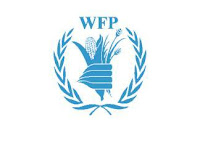UN World Food Programme

The United Nations has a World Food Programme that sends food aid to some 73 million people in around 80 countries. Recently, the WFP is warning that they have a problem: "We will have a significant gap if commodity prices remain this high, and we will need an extra half billion dollars just to meet existing assessed needs."
The Guardian notes that the WFP is holding an emergency meeting in Rome on Friday, at which its senior managers will meet board members to brief them on the scale of the problem. There will then be a case-by-case assessment of the seriousness of the situation in the affected countries, before the WFP formally asks for an increased budget at its executive board meeting in June.
Among the reasons for higher wheat, corn and soy prices are: a rise in demand for animal feed [for meat] from increasingly prosperous populations in India and China, the use of more land and agricultural produce for biofuels, and climate change.
Soy prices are up some 72% year-on-year, and wheat prices are also going up (the area planted with wheat globally has been relatively static for the last 20 years).
The Guardian: Feed the world? We are fighting a losing battle, UN admits
Reuters: UN Sees More Hunger, Unrest Over Food Inflation
The Oil Drum: USA Grain Exports - Where to, how much?

Comments
If we could make that connection clear and obvious, I think I lot of people would rather not use their car... and make sure that biofuel crops would instead go straight to the people who need such crops the most, for their sustenance and survival.
They also specifically adviced against using imported food crops, but suggested "energy forest products" or hemp. Grass would also be better than using corn or sugarcane.